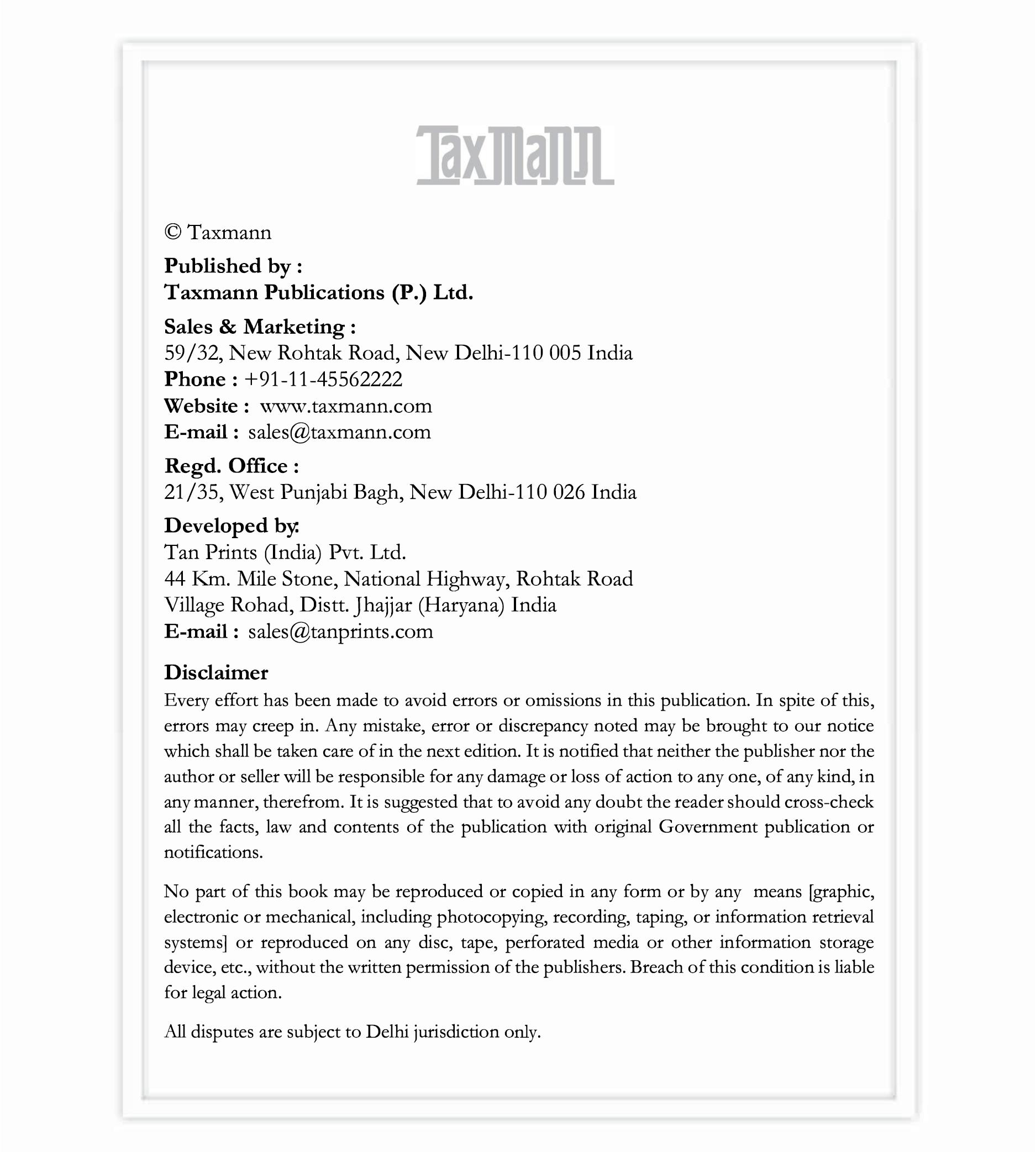





On February 14, 2025, the Securities and Exchange Board of India (SEBI) issued Circular No. 18 to standardise the information required for reviewing and approving Related Party Transactions (RPTs). This circular introduces Industry Standards for the minimum information to be provided to the Audit Committee and Shareholders when seeking approval for RPTs.
Regulation 23(2), (3), and (4) of the SEBI (Listing Obligations and Disclosure Requirements) Regulations, 2015 (LODR Regulations) mandates the approval of RPTs by the audit committee and, if material, by shareholders. The SEBI Master Circular, dated November 11, 2024, already prescribes the details to be provided to these approving authorities. However, to ensure consistency in compliance and facilitate a uniform approach, SEBI has now established minimum information standards for RPT reviews in consultation with industry representatives.
RPTs involve transactions between a company and its related entities, such as subsidiaries, promoters, directors, or relatives. While common in business, lack of transparency in these dealings can lead to conflicts of interest, financial mismanagement, and governance failures.
3.1. Definition of Related Party Transaction (RPT) under the Companies Act, 2013
As per Section 188 of the Companies Act 2013, no company shall enter into any contract or arrangement with a related party concerning the following matters except with the consent of the Board of Directors through a resolution at a Board meeting and subject to prescribed conditions:
(a) Sale, purchase, or supply of any goods or materials.
(b) Selling, disposing of, or buying property of any kind.
(c) Leasing of property of any kind.
(d) Availing or rendering services.
(e) Appointment of an agent for purchase or sale of goods, materials, services, or property.
(f) Appointment of a related party to any office or place of profit in the company, its subsidiary, or associate company.
(g) Underwriting the subscription of any securities or derivatives of the company. Further, as per the first proviso to Section 188(1), the company must obtain prior approval through a resolution if the transaction(s) meet the following criteria:
(a) Contracts or Arrangements:
• Sale, purchase, or supply of goods or materials (directly or through an agent) involving 10% or more of the company’s turnover.
• Selling, disposing of, or buying property (directly or through an agent) amounting to 10% or more of the company’s net worth.
• Leasing of property involving 10% or more of the company’s turnover.
• Availing or rendering services (directly or through an agent) amounting to 10% or more of the company’s turnover.
• The specified limits apply to transactions individually or collectively during a financial year.
(b) Appointment to any office or place of profit in the company, its subsidiary, or associate company with a monthly remuneration exceeding ₹2.5 lakh.
(c) Underwriting remuneration exceeding 1% of the company’s net worth.
There have been cases where companies awarded contracts to entities linked to their promoters without adequate disclosures, leading to regulatory scrutiny. SEBI’s new framework ensures that audit committees and shareholders receive complete information before approving such transactions.
The listed entity shall formulate a policy on the materiality of related party transactions (RPTs) and dealing with RPTs, including clear threshold limits approved by the board of directors. This policy must be reviewed at least once every three years and updated accordingly.
Material RPT Thresholds:
• A transaction with a related party is considered material if, during a financial year, it exceeds ₹1,000 crore or 10% of the annual consolidated turnover, whichever is lower, based on the last audited financial statements.
• As per the last audited financial statements, brand usage or royalty payments are considered material if the cumulative value during a financial year exceeds 5% of the annual consolidated turnover.
Also, it applies to the other transactions exceeding the lower of the following:
• 2% of turnover, as per the last audited consolidated financial statements.
• 2% of net worth, as per the previous audited consolidated financials, except in cases where net worth is negative.
• 5% of the average absolute profit/loss after tax, based on the last three financial years.
Additionally, the standards apply to other RPTs involving promoters, promoter groups, or entities where they have a direct or indirect interest, even if the transactions do not meet the materiality thresholds. These standards will be mandatory from April 1, 2025, and apply to all RPTs executed on or after this date.
The key updates from the SEBI circular include:
To bring uniformity and clarity in disclosures related to Related Party Transactions (RPTs), SEBI has mandated the adoption of Industry Standards formulated by the Industry Standards Forum (ISF). The ISF consists of representatives from three major industry associations – ASSOCHAM, FICCI, and CII – working under the guidance of SEBI and stock exchanges. These standards ensure that all listed entities provide consistent, structured, and adequate information when seeking approval for RPTs. To enhance public accessibility, these industry standards will be published on the ASSOCHAM, FICCI, CII, and Stock Exchanges websites.
Compliance with these Industry Standards is now mandatory for all listed entities. Companies must ensure that all information furnished to the Audit Committee and Shareholders aligns with these predefined disclosure standards. The circular specifically mandates adherence to the following:
• Regulation 23(2), (3), and (4) of the SEBI (LODR) Regulations, 2015, which govern the approval process for RPTs.
• Parts A and B of Section III-B of the SEBI Master Circular (dated November 11, 2024) detail the procedural and informational requirements for such approvals.
This provision is significant because it ensures all listed companies adopt a structured and detailed approach while disclosing RPTs. The uniformity brought by these standards will help Audit Committees and Shareholders assess transactions effectively and minimise the risk of inadequate disclosures or potential non-compliance.
To incorporate these Industry Standards, SEBI has made two major modifications to the SEBI Master Circular under Section III-B.
Previously, listed entities were required to submit prescribed sufficient information to the Audit Committee for reviewing RPTs, but there was no uniform format. This often led to disparities in the quality of disclosures, with some entities providing only minimal details while others furnished exhaustive information.
With the modification to Paragraph 4, Part A of Section III-B, SEBI has now standardised the disclosure requirements. The revised regulation states that all listed entities must provide the Audit Committee with information in line with the Industry Standards while seeking approval for an RPT. This ensures that Audit Committees have complete and uniform details regarding each transaction, making their review process more effective and transparent.
Though shareholder approvals for material RPTs required an explanatory statement, the absence of a standardised disclosure format often led to inconsistencies or insufficient information, making it difficult for shareholders to make informed decisions.
The modification to Paragraph 6, Part B of Section III-B addresses this issue by mandating that the notice sent to shareholders for RPT approval must include all necessary details as per the Industry Standards. The explanatory statement accompanying the notice must now contain comprehensive information in addition to the requirements under the Companies Act 2013. This change ensures that shareholders receive clear, relevant, and structured data before voting on RPTs, leading to better corporate transparency and investor protection.
The standards outline granular disclosure requirements for different types of RPTs, including the following:
• Sale or Purchase of Goods/Services – Companies must disclose the number of bids/quotations received, the best bid details, and the rationale for selecting the related party. The Audit Committee is required to justify the transaction, especially if it involves higher costs or lower benefits than external bids.
• Loans, Inter-Corporate Deposits, and Advances – The standards require companies to disclose the source of funds, interest rates, tenure, and repayment terms. If the interest rate charged is lower than the market rate, the Audit Committee must justify the preferential treatment. Additionally, the company must disclose any previous defaults by the related party.
• Guarantees and Indemnities – If the transaction involves guarantees, sureties, or comfort letters, companies must disclose the financial impact, the related party’s creditworthiness details, and any past defaults. The Audit Committee must comment on the related party’s ability to service debt and the financial risks involved.
• Investments – For investment-related RPTs, companies must disclose the source of funds, purpose, and expected returns. In case of investment in debt instruments, the latest credit rating of the related party must be provided. The Audit Committee must assess and comment on the related party’s creditworthiness if no rating is available.
The circular will come into effect from April 1, 2025. From this date onward, all listed entities must strictly comply with the new disclosure standards for RPTs. Companies that fail to adhere to these requirements could face regulatory scrutiny from SEBI or stock exchanges.
Adopting Industry Standards ensures that all Audit Committees and Shareholders receive consistent, transparent, and comprehensive information, allowing them to make well-informed decisions. By modifying the SEBI Master Circular, SEBI has reinforced the importance of uniform disclosure practices while ensuring that companies align their RPT approval processes with regulatory expectations. The involvement of stock exchanges in enforcing compliance further strengthens the monitoring and implementing of these regulations.


Founded 1972


Evolution From a small family business to a leading technology-oriented Publishing/Product company


Expansion

Launch of Taxmann Advisory for personalized consulting solutions

Aim
Achieve perfection, skill, and accuracy in all endeavour

Growth
Evolution into a company with strong independent divisions: Research & Editorial, Production, Sales & Marketing, and Technology

Future
Continuously providing practical solutions through Taxmann Advisory
Editorial and Research Division
Over 200 motivated legal professionals (Lawyers, Chartered Accountants, Company Secretaries)
Monitoring and processing developments in judicial, administrative, and legislative fields with unparalleled skill and accuracy
Helping businesses navigate complex tax and regulatory requirements with ease

Over 60 years of domain knowledge and trust
Technology-driven solutions for modern challenges
Ensuring perfection, skill, and accuracy in every solution provided
Income Tax
Corporate Tax Advisory
Trusts & NGO Consultancy
TDS Advisory
Global Mobility Services
Personal Taxation
Training
Due Diligence
Due Dilligence
Advisory Services
Assistance in compounding of offences
Transactions Services
Investment outside India
Goods
Transaction Advisory
Business Restructuring
Classification
Due Diligence
Training
Advisory
Trade Facilitation Measures
Corporate
Corporate Structuring
VAT Advisory
Residential Status

Naveen Wadhwa
Research and Advisory [Corporate and Personal Tax]
Chartered Accountant (All India 24th Rank)
14+ years of experience in Income tax and International Tax
Expertise across real estate, technology, publication, education, hospitality, and manufacturing sectors
Contributor to renowned media outlets on tax issues

Vinod K. Singhania Expert on Panel | Research and Advisory (Direct Tax)
Over 35 years of experience in tax laws
PhD in Corporate Economics and Legislation
Author and resource person in 800+ seminars

V.S. Datey Expert on Panel | Research and Advisory [Indirect Tax]
Holds 30+ years of experience
Engaged in consulting and training professionals on Indirect Taxation
A regular speaker at various industry forums, associations and industry workshops
Author of various books on Indirect Taxation used by professionals and Department officials

Manoj Fogla Expert on Panel | Research and Advisory [Charitable Trusts and NGOs]
Over three decades of practising experience on tax, legal and regulatory aspects of NPOs and Charitable Institutions
Law practitioner, a fellow member of the Institute of Chartered Accountants of India and also holds a Master's degree in Philosophy
PhD from Utkal University, Doctoral Research on Social Accountability Standards for NPOs
Author of several best-selling books for professionals, including the recent one titled 'Trust and NGO's Ready Reckoner' by Taxmann
Drafted publications for The Institute of Chartered Accountants of India, New Delhi, such as FAQs on GST for NPOs & FAQs on FCRA for NPOs.
Has been a faculty and resource person at various national and international forums

the UAE
Chartered Accountant (All India 36th Rank)
Has previously worked with the KPMG

S.S. Gupta Expert on Panel | Research and Advisory [Indirect Tax]
Chartered Accountant and Cost & Works Accountant
34+ Years of Experience in Indirect Taxation
Bestowed with numerous prestigious scholarships and prizes
Author of the book GST – How to Meet Your Obligations', which is widely referred to by Trade and Industry

Sudha G. Bhushan Expert on Panel | Research and Advisory [FEMA]
20+ Years of experience
Advisor to many Banks and MNCs
Experience in FDI and FEMA Advisory
Authored more than seven best-selling books
Provides training on FEMA to professionals
Experience in many sectors, including banking, fertilisers, and chemical
Has previously worked with Deloitte

Taxmann Delhi
59/32, New Rohtak Road
New Delhi – 110005 | India
Phone | 011 45562222
Email | sales@taxmann.com
Taxmann Mumbai
35, Bodke Building, Ground Floor, M.G. Road, Mulund (West), Opp. Mulund Railway Station Mumbai – 400080 | Maharashtra | India
Phone | +91 93222 47686
Email | sales.mumbai@taxmann.com
Taxmann Pune
Office No. 14, First Floor, Prestige Point, 283 Shukrwar Peth, Bajirao Road, Opp. Chinchechi Talim, Pune – 411002 | Maharashtra | India
Phone | +91 98224 11811
Email | sales.pune@taxmann.com
Taxmann Ahmedabad
7, Abhinav Arcade, Ground Floor, Pritam Nagar Paldi
Ahmedabad – 380007 | Gujarat | India
Phone: +91 99099 84900
Email: sales.ahmedabad@taxmann.com
Taxmann Hyderabad
4-1-369 Indralok Commercial Complex Shop No. 15/1 – Ground Floor, Reddy Hostel Lane Abids Hyderabad – 500001 | Telangana | India
Phone | +91 93910 41461
Email | sales.hyderabad@taxmann.com
Taxmann Chennai No. 26, 2, Rajan St, Rama Kamath Puram, T. Nagar
Chennai – 600017 | Tamil Nadu | India
Phone | +91 89390 09948
Email | sales.chennai@taxmann.com
Taxmann Bengaluru
12/1, Nirmal Nivas, Ground Floor, 4th Cross, Gandhi Nagar
Bengaluru – 560009 | Karnataka | India
Phone | +91 99869 50066
Email | sales.bengaluru@taxmann.com
Taxmann Kolkata Nigam Centre, 155-Lenin Sarani, Wellington, 2nd Floor, Room No. 213
Kolkata – 700013 | West Bengal | India
Phone | +91 98300 71313
Email | sales.kolkata@taxmann.com
Taxmann Lucknow
House No. LIG – 4/40, Sector – H, Jankipuram Lucknow – 226021 | Uttar Pradesh | India
Phone | +91 97924 23987
Email | sales.lucknow@taxmann.com
Taxmann Bhubaneswar
Plot No. 591, Nayapalli, Near Damayanti Apartments
Bhubaneswar – 751012 | Odisha | India
Phone | +91 99370 71353
Email | sales.bhubaneswar@taxmann.com
Taxmann Guwahati
House No. 2, Samnaay Path, Sawauchi Dakshin Gaon Road
Guwahati – 781040 | Assam | India
Phone | +91 70866 24504
Email | sales.guwahati@taxmann.com